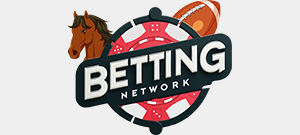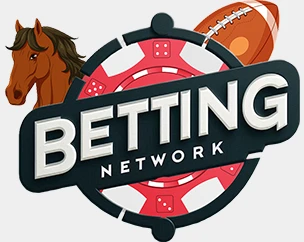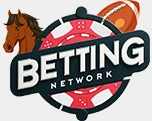Responsible Gambling
Responsible Gambling
At Betting Network, we promote responsible gambling, meaning individuals can participate in sports betting, casino gaming, or horse racing betting in a way that’s enjoyable and doesn’t negatively impact their lives.
Do You Think You Might Have a Gambling Problem?
If you suspect you may have an issue with gambling, we encourage you to reflect on the following questions. If you find that more than half apply to you, it may be time to seek professional help:
1. Do you feel regret or guilt after placing bets?
2. Do you gamble large sums of money in an attempt to fulfill your needs?
3. Is it difficult for you to stop betting after a loss?
4. Has gambling led to problems with your finances, work, or family?
5. Has betting affected your relationships, behavior, or academic performance?
6. Do you feel anxious or stressed when you don’t gamble for a while?
7. Have you developed any physical or mental health issues related to gambling?
8. Do you have concerns about your gambling behavior but try to ignore them?
Helping Others With Gambling Problems
In addition to managing your own gambling habits, you may notice others struggling with similar issues. Look out for these warning signs to identify potential gambling addiction:
Financial Red Flags:
- Unexplained missing money
- Valuables disappearing from the home
- Constant money shortages despite regular income
- Multiple loans
- Late or unpaid bills
- Frequent borrowing
- Secretive about financial matters
- Basic necessities, like food, lacking in the home
Mood and Behavior Changes
- Declining work performance
- Significant shifts in personality
- Withdrawing from loved ones or social activities
- Manipulative or deceitful behavior
- Unexplained irritability, anxiety, or anger
- Using threats or dishonesty to control others
- Feelings of hopelessness or depression
Time-Related Signs:
- Spending more and more time gambling
- Procrastinating on simple tasks
- Being absent without explanation
- Constant lateness for meetings or appointments
- Frequently taking days off work for gambling
Preventing Underage Gambling
In the U.S., anyone participating in online or in-person betting must be at least 21 years old. Betting Network takes this requirement seriously, and we encourage parents to monitor their children’s online activities to ensure they don’t engage in gambling.
How Betting Sites Restrict Minors
Betting platforms verify age through personal details like addresses, bank account information, and identification. However, in some areas, minors may still find ways to gamble. To help parents prevent this, we recommend the following apps:
- Family Link (Google)
- Qustodio Parental Control
- Kaspersky Safe Kids
- Locategy (Family Locator)
- Circle
- Koala Safe
- Kids Place
Other helpful options include Cybersitter and CyberPatrol for added protection.
Tools for Responsible Gambling
To support users in managing their betting behavior, most sportsbooks offer a variety of responsible gambling tools:
- Deposit Limits: Set daily or monthly limits on how much you can deposit.
- Loss Limits: Establish a cap on how much you’re willing to lose over a set time frame.
- Time Limits: Control how long you can spend gambling in one session, with automatic logouts when the limit is reached.
- Time-Out: Take a temporary break from betting, with the option to block access to your account for a set period.
- Bet Limits: Place restrictions on how much you can wager each day, week, or month.
- Transaction History: Review your deposit, withdrawal, and betting history to track your wins and losses.
- Self-Exclusion: Opt to temporarily or permanently block yourself from betting if you feel you’re losing control.
- Self-Assessment: Use self-appraisal tools to assess whether you should continue gambling based on your answers to key questions.
Resources for Gambling Support in the U.S.
If you need help managing your gambling habits, there are many resources in the U.S. where you can receive confidential, anonymous support:
– **Cascadia Problem Gambling**
Phone: 503-674-7777
Website: [www.cascadiahealth.org](https://www.cascadiahealth.org)
– **International Center for Responsible Gaming**
Phone: 978-338-6610
Email: [email protected]
Website: [www.icrg.org](https://www.icrg.org)
– **National Council on Problem Gambling**
Address: 730 11th St, NW, Ste 601, Washington, DC 20001
Phone: 202-547-9204
Email: [email protected]
Website: [www.ncpgambling.org](https://www.ncpgambling.org)
### Helplines for Gamblers in the U.S. and Internationally
– **USA**: National Council on Problem Gambling (1-800-GAMBLER)
– **USA**: Substance Abuse and Mental Health Services Administration (SAMHSA) (1-877-726-4727)
– **Argentina**: Responsible Gambling – 0800-333-0333, WhatsApp 011-1524416058
– **Colombia**: Jugadores Anónimos – +34-670-691-513 ([email protected])
– **Perú**: CNEM (Addictions Lima) +51-990-829-437
– **Chile**: CIAD +56 2222 544 44
– **Brazil**: Jogadores Anônimos – (11) 3229-1023
– **Canada**: ProblemGambling – 1-866-531-2600
– **Chile**: Psicólogos Ludopatía Chile – 9 222 3860



